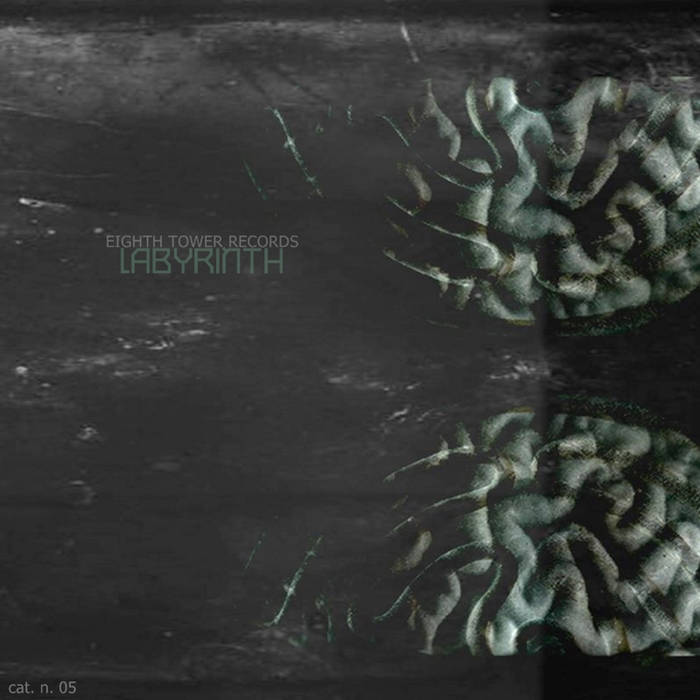 “Before unearthing this letter, I had questioned myself about the ways in which a book can be infinite. I could think of nothing other than a cyclic volume, a circular one. A book whose last page was identical with the first, a book which had the possibility of continuing indefinitely.”
“Before unearthing this letter, I had questioned myself about the ways in which a book can be infinite. I could think of nothing other than a cyclic volume, a circular one. A book whose last page was identical with the first, a book which had the possibility of continuing indefinitely.”
Jorge Luis Borges, Labyrinths
The question of the infinite in regards to a poetic text – be it prose, paint or performed on an instrument – is unlikely to have been far from the mind of Raffaele Pezzella when curating this two hour plus compilation of twenty-two tracks from twenty-two separate projects. Something which can forever be returned to and which reveals an ever increasing scope must surely be considered fathomless. This is firmly rooted within the concept of the labyrinth. A musical path is laid out. Curated. It is a trail which requires your trust, your submission. To embark upon such a journey demands a receptive mind.
From The Omen by Xerxes The Dark to Psionic Asylum’s opener When The Shadows Come, tenebrous motifs are worn on discernible sleeves. Ambient drones attempt to scythe the tethers joining them to this idea of a singular path. Samples and field recordings add grim textures to haunting tracks by the likes of Sonologyst, SiJ, and the Ecuadorian experimental project Damballah. These are the sounds of blackened rituals being performed in abandoned sacred sites. Troubling energies are invoked and obscured. A form of malice drifts in upon the whistle of an arctic wind. Necrophorus drowns a lullaby.
Straying from the content of this compendium for just a moment, it is interesting to ruminate upon a further meaning of the term “labyrinth”. The sound signals, which we receive whilst listening to music, travel through a hollow cavity in the temporal bone of our skulls. This is a system of passages known as the labyrinth and which exists within our own ears. Listening to Labyrinth via a labyrinth is just the sort of meta trickery that might dissuade resistant souls from continuing any further. Remain open-minded and yield to the sonic poetry on display here, however, and perhaps the depths of layered multiverses might just reveal themselves. As Gaston Bachelard wrote in his highly influential work, The Poetics of Space:
“All important words, all the words marked for grandeur by a poet, are key to the universe, to the dual universe of the Cosmos, and the depths of the human spirit”.
Our universe is inseparable from our human spirit. Our labyrinth is our unicursal existence. Drawn along a time-driven line, bookended by birth and death. The two certainties. Our unavoidable fate.
Whilst this impending horror might not be the sole theme for all the musicians on this compilation, the dark, brooding nature of the tracks included evidently show a desire to dabble with worlds both shadowy and treacherous.
With sheets of Doppelered synths, Silent Chaos returns us to the theme of King Midos’s imprisoned and deformed son. The famous labyrinth of Greek mythology. A countdown to the brokenhearted tears of a just ruler mourning his slain offspring. Here sorrowful, warped strings sag with longing against primitive pounded toms. IOK-1’s introverted We’ll Return To Our Departed Selves reaches out into the cosmic void, searching for the artist’s namesake within Coma Berenices. There is a dejected and defeatist stance to the clacking percussion that sees this track out before the blaring, Roly Porter-aping, blasts of Soliloqua brings dramatic end-of-days visions to proceedings.
Monica Vlad then takes her turn with piercing atonality and tetchy string scrapes that descend through a muffled industrial fug. And finally Labyrinths is rounded off by SKR Project’s study on mimicked thunder and paranoid plinks. Whilst not quite returning to the identical page that Psionic Asylum wrote in on, Borges can rest happy with the knowledge that this compilation’s loop through the labyrinth certainly has the possibility of continuing indefinitely.
J.B.
Ссылка на оригинал

